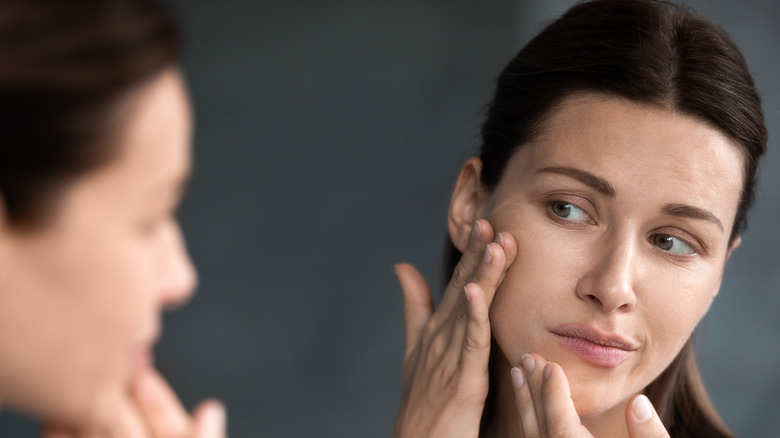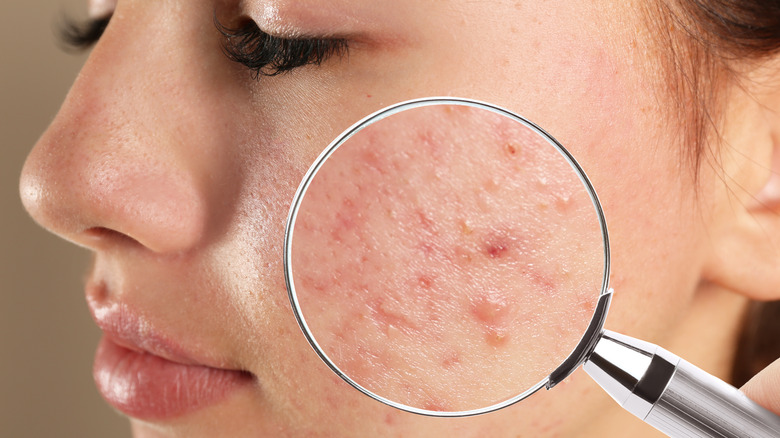The Real Difference Between Hormonal And Stress-Induced Acne
If you've ever struggled with acne, you know how frustrating and debilitating it can be. It can mess with your makeup routine, your mood, and even your self-image. But acne is even more infuriating when you have no idea what's causing it.
It's already stressful trying to figure out the reason behind your breakouts, so it doesn't help that stress itself can be a big trigger for acne (via Cleveland Clinic). Yep, stressing out over acne can actually make it last even longer. But according to the Cleveland Clinic, fluctuating hormones can also be a culprit, which is why it's important to figure out exactly how to tell what type of acne you have.
The first step with any serious skin concern like acne is to pay a visit to your dermatologist. However, there are a few tips and tricks that can help you figure out if your acne is hormonal or stress-induced. New Beauty spoke to three top dermatologists to get some answers on how to crack the code.
Timing and location can help you determine whether your acne is hormonal or stress-induced
According to dermatologists Janet Allenby, Philip Werschler, and Julie Russak, there are three main areas to focus on when trying to figure out which type of acne you're dealing with: the root cause, the location, and the timing. Dr. Allenby recommends paying close attention to the timing, especially if you're a female. "Our monthly hormones can make our stress levels seem out of control as we get closer to menstruation and our estrogen levels decrease," she told New Beauty.
The location of your acne is also important. We've all seen those online graphics telling you how each part of your face can explain the type of acne, and as it turns out, they're actually quite accurate. Drs. Allenby and Russak explain how hormonal acne is often found around the chin area or the jawline due to the concentration of oil glands, while stress-induced acne often shows up in the form of a big pimple on the forehead.
At the same time, hormonal and stress-induced acne do share some overlap. According to Dr. Werschler, "hormones stimulate the oil glands which can clog the follicular opening," but "chronic stress can also alter your hormone levels, resulting in more sebum production and the onset of acne through the traditional route." We may not be able to fully control our hormones, but we can always find ways to lower our stress levels. Your skin will thank you for it!

